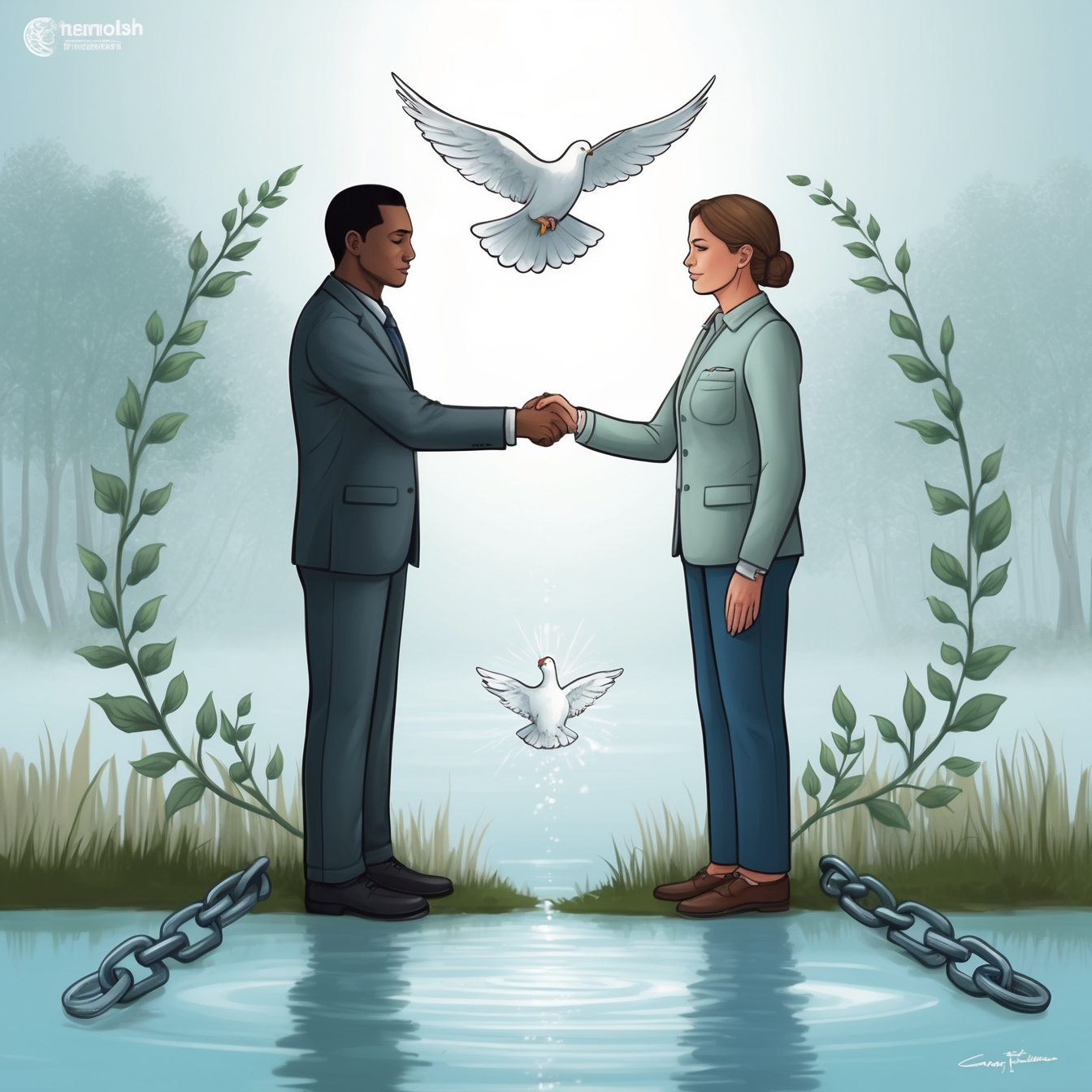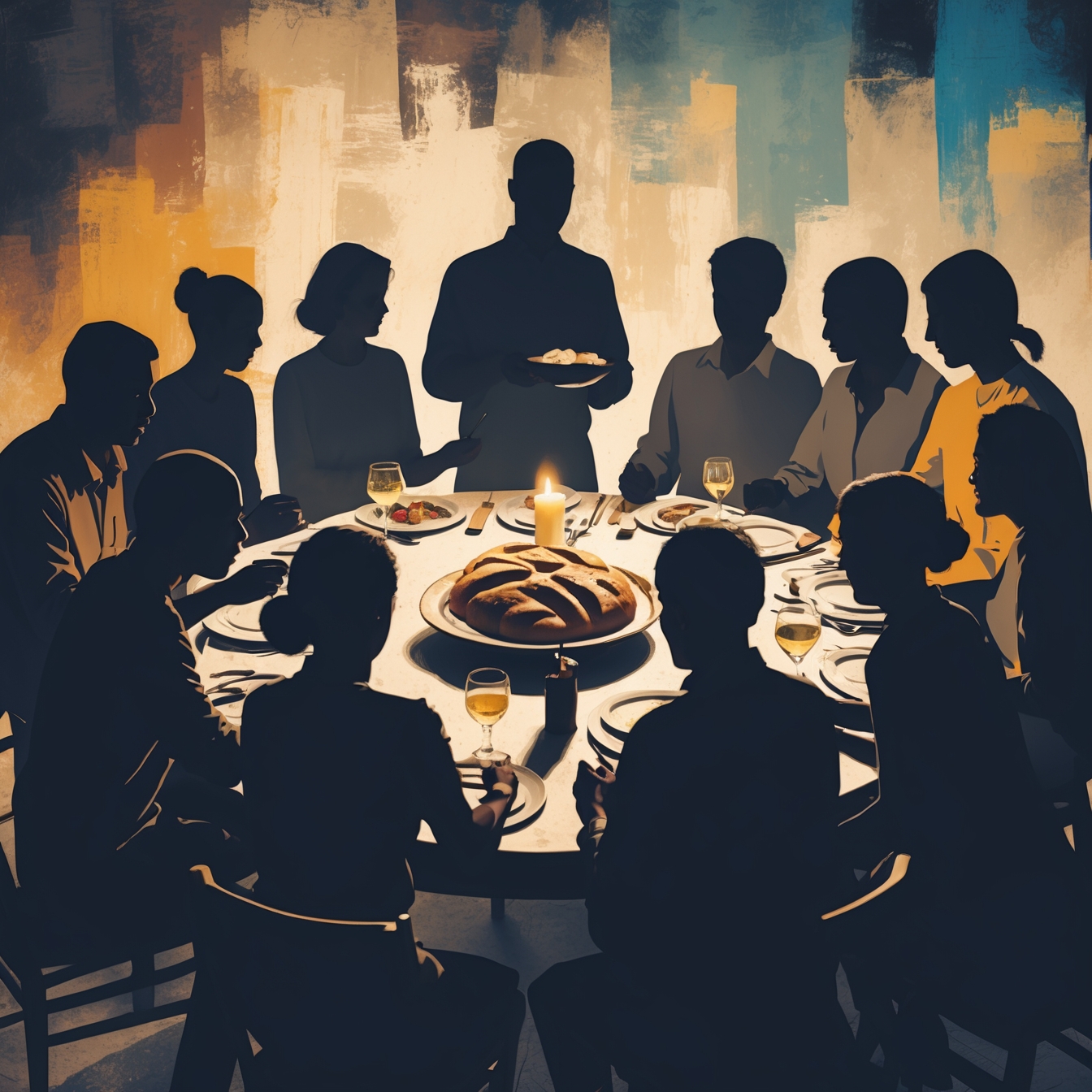
To God and to each other in that order.
There’s a rightful excitement about being redeemed. However, the matter of being reconciled brings another dimension to the renewed life. There’s a sense in which the redeemed is about what God does for us in paying the price to purchase what belongs to Him. The sense of being reconciliation brings more of a sense in which we play a part in the interaction – and that part is not commendable at the start.
When we’re enslaved and need to be liberated to be redeemed, we can all feel like the victims in the narrative. When it comes to reconciliation, we are no longer the victim. The essential reconciliation takes place because of the fracture in relations. Relations were broken because we rebelled. Relations were broken because we turned our back on the one who created us.
The seriousness of that fracture not only affected relations between earth and heaven, but it also brought about severe fractures between us on the earth. From the moment that the man and woman discovered their nakedness and were ashamed, a wedge was driven in relations between the sexes. That shame also brought up barriers to a healthy inner life. That shame and acknowledgement that the quest to know right and wrong was just as much an excuse to delve into those evils and wrongs and then the need to cover that in denial, self-righteousness, pride, defensiveness, projecting on others, and other ailments made life an ongoing struggle to truly understand who we were and what we should do. The muddle and confusion caused by the range of self-serving “solutions” that ultimately failed to bring about true resolution aggravated the schism of right relations with others and right relations with ourselves.
God’s relationship with Israel indicates how God deals with rebels who are given an opportunity to have the right relationship with Him. He is righteous and just to let the people know that the consequences of their actions will be experienced. He is faithful and merciful, ever reaching out to be reconciled with those who turn their back to Him. He also communicates to let those who listen know that the path of reconciliation will enable people to experience the right relationship with Him by means that will affect the heart when it comes to the desire to rebel. That measure addresses what can bring about reconciliation and also impacts how we deal with others.
When Jesus comes on the scene in the flesh, His teachings highlight what God is doing. The reconciliation is about the people of the promise and their God. The reconciliation even extends to those not of the covenant of Abraham, Isaac and Jacob. The reconciliation enabled those who repented to be filled with the Spirit of God, which allowed them to be the sons of God marked by their quest to make peace. Make peace in the way that the Son came to make peace. Peace between God and man, peace between humanity, and peace on the inside, where the issues of shame, guilt, pride, fear, etc., can be dealt with in a renewed life.
Life renewed on the individual level affected how we engaged with others who operated in this new life. Now, issues like resentments and grudges have to be addressed in the light of the prayerful request that we forgive those who trespass against us even as God has forgiven us. Relations, particularly with those in the family of God, had to be marked with how Jesus could look at friends who lived with Him, saw Him close up and then denied Him and ran away from Him could still be welcomed back to right relations.
The family of God could not afford to be marked as a social holy club that made pious reference to getting on with each other because they met every week and had occasional bring and share occasions. The family of God reconciled to Him by the blood of His Son and empowered by His Spirit could not reflect a world of shallow relationships and interactions of convenience. The unity in the Body of Christ was noted through the awareness of the fractures that could take place and the desire to have those healed even as our fracture with the Father was healed in Christ.
It remains one of the pivotal factors that makes those in the family of God distinct from others. The love that Jesus said would mark out those who were His disciples is the love that serves and the love that forgives. This quality would be evident in the family that met in His name even as they celebrated eating His body and drinking His blood together. It did not just mark remembering the peace God enabled by His Son to us – it marked how that blood coursing through us connects us in ways that nothing else could.
The relief of reconciliation is palpable as we experience peace on the inside. The rejoicing in reconciliation is evident when what would usually divide us is overcome by what unites us. The righteousness in reconciliation propels us to pursue this with each other and take on the ministry of reconciliation ourselves. The right relations we practice in our interactions here and now are precursors for the eternal celebration at the consummation of all things. As the Prince of Peace presides over eternity without sin, we enjoy this with Him.
What’s more, those who pursue this joyous path are not just a People Redeemed and Reconciled, but a People Restored …
For His Name's Sake
C. L. J. Dryden
Shalom





